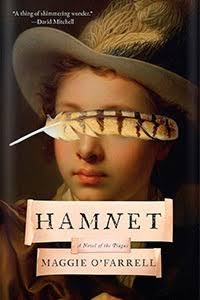I can trace my first Backman novel to
A Man Called Ove. One of my favorite public librarians met me when I entered and said, "I've held this one of you." Anyone who has read the novel knows that it takes a while to warm up to Ove. As I read the first chapters, I wondered why she thought of me. Then as I read, I figured it out.
Anxious People, a story nothing like Ove, captured me immediately too. Backman caught me by complete surprise in that book, and I couldn't wait to talk to someone else about it: "Did you guess?!"
I listened to the audiobook of Beartown a while ago, but somehow missed the second in what would become a series, Us Against You, until book three The Winners was added to my book club list for 2023. I knew I needed to read the second book first.
Even though I cheer for the Nashville Predators, I am by no means a big hockey fan. But reading this book no more requires that I be than reading Tomorrow and Tomorrow by Gabrielle Zevin requires that I know or care much about video gaming.
Backman knows how to develop characters--complicated, flawed, multi-layered characters. The Andersson family is at the center of much of the narrative, but the threads that connect all the characters, even across the rival towns borders, are so complicated: Ramona at the Bearskin Pub; Teemu and the Pack who control the standing area of the rink, the grocer Tails, Bobo and Amat, Mumble and Alicia, the young prodigy who finds an alternate family in the hockey club.
As I barreled my way through these two books, hardly able to slow down, I kept reminding myself that I was reading in translation from Backman's original Swedish. How interesting, then, that I have probably taken more notes of favorite quotes from these books than many others I've read recently.
Backman is also the master of the red herring, doling out just enough information to give the reader a smug sense of dramatic irony (or a foreboding sense of what may have just happened) and then spinning the story. The third book The Winners open with this sentence: "Everyone who knew Benjamin Ovich, particularly those of us who knew him well enough to call him Benji, probably knew deep down that he was never the sort of person who would get a happy ending." Then readers have to wait for it. Because we do feel like we know him well enough to call him Benji.
Backman balances the foreboding by letting us know a few will make it. Maya will have her music career, for example. Alicia will go on to be a hockey champion.
Us Against You had much to say about masculinity. The Winners examines family relationships, the never-finished job of parenting, the phases of a long marriage, the identify of home, family ties that develop without the biological benefit of blood kin. At one point, the narrator points out that this is "a story about...love that was like organ donation." Maybe that's it: painful, sacrificial, but live-giving.

Backman's Book Two and Three: Nothing Lost in Translation









